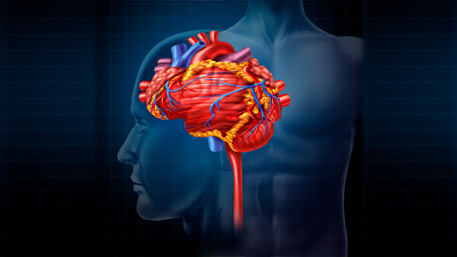 Spotlight
Spotlight
APOE4 homozygozity represents a distinct genetic form of Alzheimer’s disease
The FDA and Gene Therapy for Duchenne Muscular Dystrophy
 Latest News and Publications
Latest News and Publications
Hurraß Julia, et al. Pneumologie (Stuttgart, Germany) 2024 0 0. (10) 693-784
Clinical characteristics of pregnant women with COVID-19 and infection outcomes in one of the largest cities in the Brazilian Amazon.
de Montalvão França Ana Paula Figueiredo, et al. BMC infectious diseases 2024 0 0. (1) 1175
Long-term COVID-19 sequelae by Theta and SARS-CoV-2 variants in a Philippine cohort.
Saloma Cynthia P, et al. Frontiers in medicine 2024 0 0. 1455729
New Onset Systemic Lupus Erythematosus with Unusual Presentation and Multi-Organ Involvement after Covid-19 Vaccination in a Pediatric Patient: A Case Report.
Vahedi Mahdieh, et al. Iranian journal of kidney diseases 2024 0 0. (5)
COVID-19 vaccine hesitancy and intentions among parents of children with mental and behavioral disorders.
Khoodoruth Mohamed Adil Shah, et al. Human vaccines & immunotherapeutics 2024 0 0. (1) 2412385
SARS-CoV-2 Vaccine Improved Hemostasis of a Patient with Protein S Deficiency: A Case Report.
Mohammad Mohammad A, et al. International journal of molecular sciences 2024 0 0. (19)
Dosimetry model for photobiomodulation based on anthropometric and hemodynamic variables in patients with orofacial pain post-Covid-19: Study protocol for randomized clinical trial.
Schuler Silvana Simões Velloso, et al. PloS one 2024 0 0. (10) e0309073
Cardiac Arrhythmias and Autonomic Dysfunction Associated With COVID-19: A Scientific Statement From the American Heart Association.
Gopinathannair Rakesh, et al. Circulation 2024 0 0.
COVID-19 Is a Coronary Artery Disease Risk Equivalent and Exhibits a Genetic Interaction With ABO Blood Type.
Hilser James R, et al. Arteriosclerosis, thrombosis, and vascular biology 2024 0 0.
Associations between clinical data, vaccination status, antibody responses, and post-COVID-19 symptoms in Thais infected with SARS-CoV-2 Delta and Omicron variants: a 1-year follow-up study.
Khongsiri Wathusiri, et al. BMC infectious diseases 2024 0 0. (1) 1116
More
About ND PHGKB
Neurological Disorders (ND) PHGKB is an online, continuously updated, searchable database of published scientific literature, CDC and NIH resources, and other information that address the public health impact and translation of genomic and other precision health discoveries into improved health outcomes related to neurological disorders....more
Content Summary
Common ND Related Topics
Disclaimer: Articles listed in the Public Health Knowledge Base are selected by the CDC Office of Public Health Genomics to provide current awareness of the literature and news. Inclusion in the update does not necessarily represent the views of the Centers for Disease Control and Prevention nor does it imply endorsement of the article's methods or findings. CDC and DHHS assume no responsibility for the factual accuracy of the items presented. The selection, omission, or content of items does not imply any endorsement or other position taken by CDC or DHHS. Opinion, findings and conclusions expressed by the original authors of items included in the update, or persons quoted therein, are strictly their own and are in no way meant to represent the opinion or views of CDC or DHHS. References to publications, news sources, and non-CDC Websites are provided solely for informational purposes and do not imply endorsement by CDC or DHHS.
- Page last reviewed:Feb 1, 2024
- Content source:


